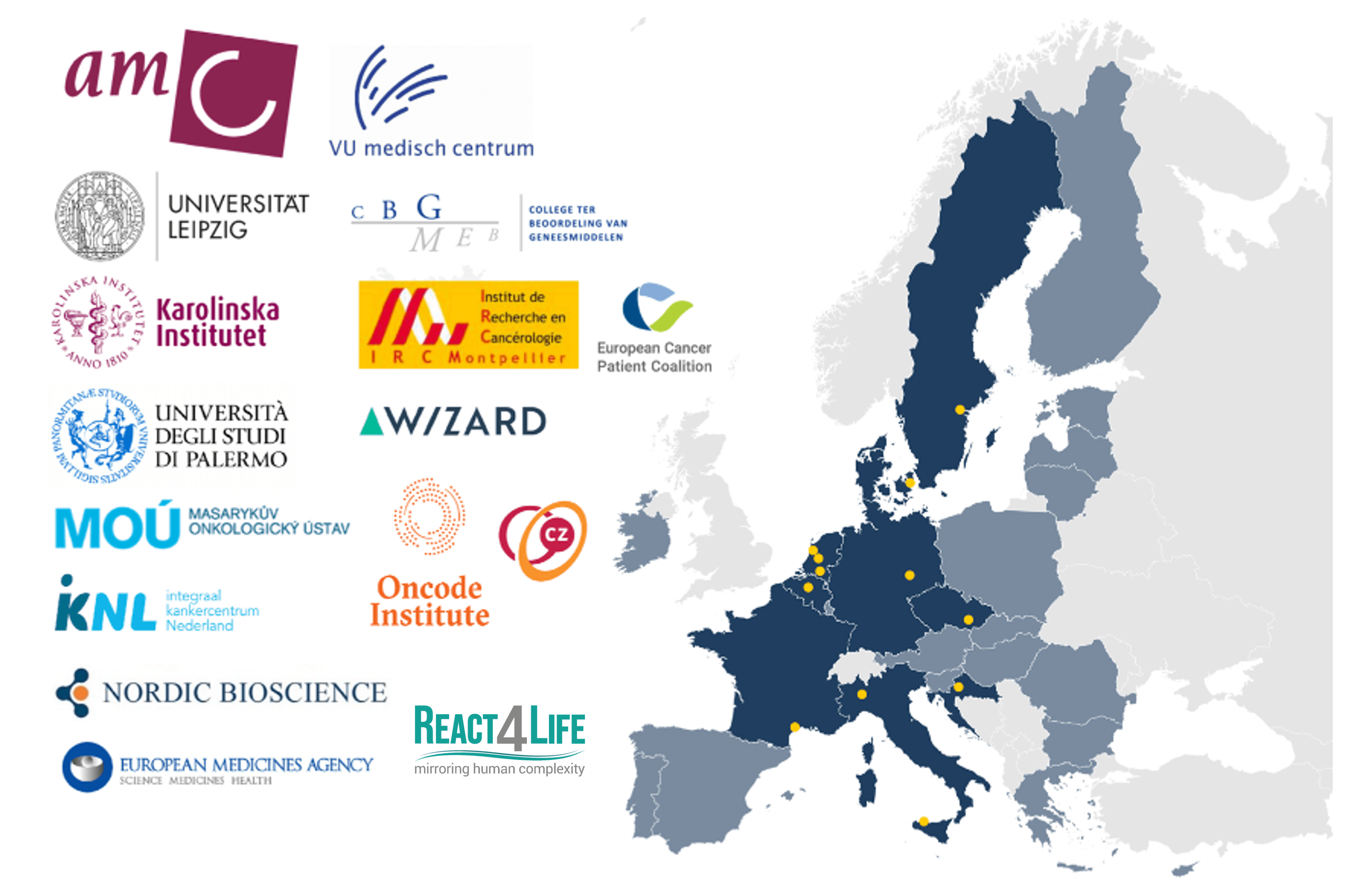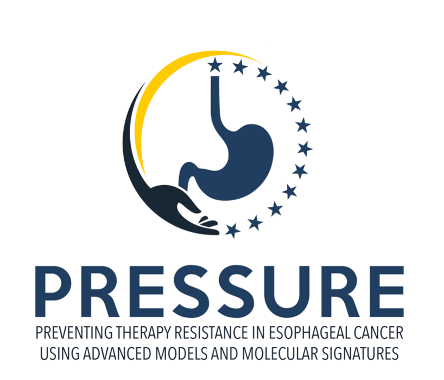The PRESSURE consortium stands as a collaborative force, aligning expert groups from the Netherlands, Germany, Italy, Sweden, Czech Republic, France, and Denmark. This strategic union is dedicated to addressing critical challenges hindering the effective treatment of esophageal adenocarcinoma (EAC).
PRESSURE members have independently amassed a wealth of samples, disease models, clinical data, scientific know-how, and cutting-edge technologies. In the consortium, these elements will be joined to develop novel and optimized treatment strategies and diagnostics. We will employ 10 researchers to address these scientific challenges by performing research in academic and industrial groups, and by doing so receive exhaustivetrainingacross relevant disciplines and sectors.
Background: The Cancer Epidemic and Esophageal Adenocarcinoma.
Looking ahead to 2035, cancer emerges as the leading cause of death in the European Union, urging a critical examination of its multifaceted challenges. Among these challenges, therapy resistance assumes a pivotal role, contributing significantly to high recurrence rates, increased morbidity, and mortality.
Esophageal adenocarcinoma (EAC), the predominant form of esophageal cancer in the Western world, stands as a prime example of cancer’s tenacious resistance to therapy. Despite recent strides in treatment strategies, long-term survival rates remain distressingly low.
Recognizing the urgent need for improvement in EAC treatment outcomes, this consortium highlights the necessity to unravel the molecular and cellular mechanisms of resistance. A deeper understanding is the key to unlocking the path toward long-term survival for EAC patients.
Challenges Hindering Effective EAC Treatment
- Lack of Consensus Treatments: The absence of consensus treatments for EAC across the EU leads to divergent outcomes, rapid resistance, and varied responses, impacting the efficacy of treatments.
- Fragmentation of Expertise: Fragmentation within the field hampers a complete understanding of the clinical and biological aspects of EAC. PRESSURE Consortium members aim to overcome this challenge by pooling their expertise, samples, clinical data, and cutting-edge technologies.
- Insufficient Awareness and Knowledge: Inadequate awareness and knowledge about the specific biomedical and societal challenges posed by EAC hinder the development of a unified, low-risk treatment strategy.
Objectives of PRESSURE Consortium
- Identifying Disproportionate Risks: Conducting an epidemiological appraisal of real-world treatment efficacy and identifying resistance mechanisms to establish a uniform and effective treatment for EAC across Europe.
- Unifying Expertise and Establishing a Preclinical Platform: Bringing together key European experts to establish a shared preclinical platform, including joint registries, standardized model systems, and diagnostic tools, to measure, target, and predict therapy resistance.
- Training the Experts of Tomorrow: Offering research-based training in top-notch biomedical research groups, featuring a diverse scientific training program, and continuous valorization efforts to protect and utilize generated knowledge and products.
The Way Forward
By addressing the key challenges in EAC treatment, PRESSURE seeks to establish a comprehensive training initiative, combat EAC, and contribute to overcoming cancer therapy resistance. This inter-sectoral, multidisciplinary effort will not only advance the development of rational, effective treatments but also position the EU at the forefront of EAC research and treatment, fostering commercial viability and startups to meet this unmet need.
The Consortium



